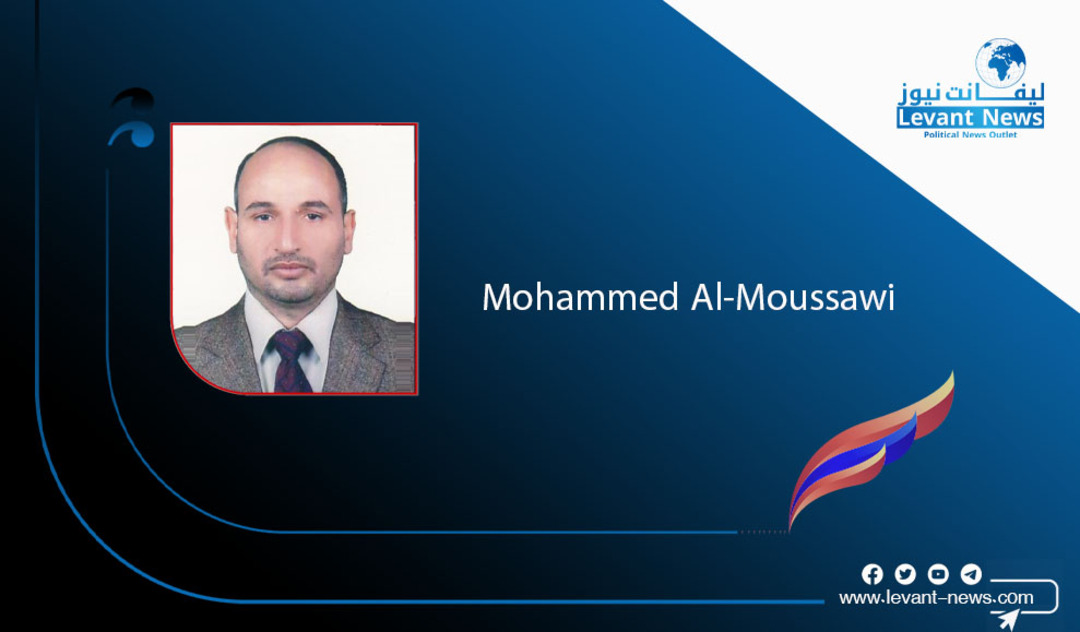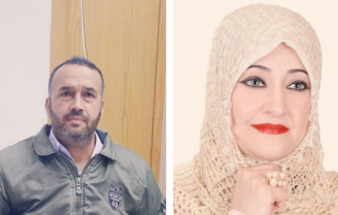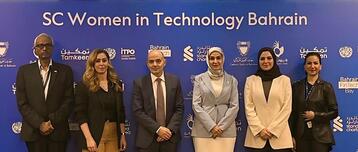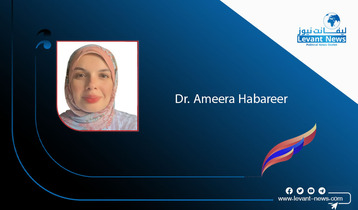-
The Politics of Maneuvering and Appeasement: The Apparent Struggle between the U.S. and the Iranian Regime
-
Negotiations with the Iranian Regime: An Effort to Extract It from the Bottleneck

No one in this deceitful global system cares about the condition and fate of the oppressed and downtrodden in the Middle East. They see nothing but a continuous stream of genocidal events in the Middle East for hot statements, unique camera shots, and as material for media that creates stars in the world of journalism, generating glory through viewership and advertisements for television channels. They profit from human suffering, often assisting the perpetrator in burying their victims in silence, if not openly obscuring falsehood as truth.
Will this world care about the plight of the Iranian people, then the Iraqis, then the Lebanese, Syrians, and Yemenis, especially when it hasn’t cared about the Palestinian people who have suffered for over a hundred years? Will the West, its allies, soldiers, and tools find anyone to serve them better than the ruling mullah regime in Iran, which has destroyed four Arab countries (Lebanon, Iraq, Yemen, Syria), and today enables them to shatter the Palestinian cause and the dream of restoring Palestinian rights? The mullah regime knows well the West's propensity for maneuvering and appeasement, just as it knows what to place in the bouquets of roses offered during cozy moments! Here, we ask: will the West ever sincerely follow up on its intentions, slogans, and the polished values it has woven to deceive human societies on this planet and even themselves?
We bring nothing from our side nor assume a specific narrative; more than a year ago, statements from both the International Atomic Energy Agency and the U.S. administration indicated that the mullah regime in Iran was only months, weeks, or days away from acquiring a nuclear bomb or multiple nuclear bombs. According to a secret United Nations report referenced by the Wall Street Journal, Iran's stockpile of enriched uranium has significantly increased, reaching 275 kilograms enriched to 60%, enough to produce six nuclear bombs, and according to this trajectory, the regime could produce a nuclear bomb every month.
At that time, Elon Musk secretly met with a senior official in the Trump administration and the Iranian representative at the United Nations. Media reports in America and Iran discussed that meeting, with Iranian officials stating that the American president was a businessman and could be dealt with, meaning that there were paths to interact with him. President Trump himself had previously indicated that behind the curtains, there were scenarios, maneuvers, and concessions between them and the Velayat-e Faqih regime. This was evident in the United States' policy toward this regime, which has been keen to maintain a calming distance between both parties while allowing some room for statements and media coverage, each according to its size, with the important caveat of not crossing red lines.
What’s new today is that the American administration, which previously made statements about the mullahs' nuclear program and other aspects related to the apparent struggle between both sides, now claims that the Iranian regime is not currently in the process of manufacturing a nuclear weapon. This may mean that there is no Iranian nuclear weapon, but rather fears about the regime possessing such a weapon. This requires negotiations and further pressures for it. Here we ask: what is new regarding the negotiations? All previous American administrations have negotiated with the Velayat-e Faqih regime and imposed multiple pressures, but this has made no difference except for providing the Iranian regime with more time. The upcoming negotiations will likely lead to more concessions and gains that will not dismantle the Iranian nuclear and missile programs or even weaken the Islamic Revolutionary Guard Corps, which has caused the devastation of Iran and the region. These negotiations will either end or continue to keep the mullah regime in power in Iran, perpetuating the suffering of the Iranian people and the peoples of the region.
The vast majority of the people in the region understand the current events regarding the West's efforts to keep the area mired in crises and that the West's way to achieve this is by supporting the continuation of the extremist mullah regime ruling in Iran, which enables them to rein in the Middle East, strip it of its will and resources, and control the reality of global development while limiting Russian and Chinese influence in the region. The people in the region also acknowledge the existence of American-Iranian coordination as a dire necessity to implement plans concerning the area. Without the mullah regime, they would not have been able to destroy Syria, Hezbollah, Gaza, or kill and displace its people. Without it, they would not have turned the Houthis into a tool of pressure on the Gulf states. The West and Americans maneuver and appease while the mullah regime adapts to their plans and maneuvers to ensure its survival in power, indifferent to the human rights violations occurring in Iran and the threats it poses to the region and its stability. The West and the Americans previously gifted.
In conclusion, wouldn't it be easier and better to assist the Iranian resistance in its project to overthrow the Iranian regime and save the Iranian people and the peoples of the region? This regime and its extremist terrorist forces inside Iran and the region could have been done years ago, but the West avoided it, just as they avoided targeting the Revolutionary Guards militia. Under this policy of appeasement and maneuvering, the mullahs' nuclear and missile programs will not cease, nor will the mullahs cease their regional expansionist interventions. There is no solution except through national surprises created by the peoples and catching global imperialism off guard.
Dr. Mohammed Al-Moussawi
You May Also Like
Popular Posts
Caricature
BENEFIT AGM approves 10%...
- March 27, 2025
BENEFIT, the Kingdom’s innovator and leading company in Fintech and electronic financial transactions service, held its Annual General Meeting (AGM) at the company’s headquarters in the Seef District.
During the meeting, shareholders approved all items listed on the agenda, including the ratification of the minutes of the previous AGM held on 26 March 2024. The session reviewed and approved the Board’s Annual Report on the company’s activities and financial performance for the fiscal year ended 31 December 2024, and the shareholders expressed their satisfaction with the company’s operational and financial results during the reporting period.
The meeting also reviewed the Independent External Auditor’s Report on the company’s consolidated financial statements for the year ended 31 December 2024. Subsequently, the shareholders approved the audited financial statements for the fiscal year. Based on the Board’s recommendation, the shareholders approved the distribution of a cash dividend equivalent to 10% of the paid-up share capital.
Furthermore, the shareholders endorsed the allocation of a total amount of BD 172,500 as remuneration to the members of the Board for the year ended 31 December 2024, subject to prior clearance by related authorities.
The extension of the current composition of the Board was approved, which includes ten members and one CBB observer, for a further six-month term, expiring in September 2025, pending no objection from the CBB.
The meeting reviewed and approved the Corporate Governance Report for 2024, which affirmed the company’s full compliance with the corporate governance directives issued by the CBB and other applicable regulatory frameworks. The AGM absolved the Board Members of liability for any of their actions during the year ending on 31st December 2024, in accordance with the Commercial Companies Law.
In alignment with regulatory requirements, the session approved the reappointment of Ernst & Young (EY) as the company’s External Auditors for the fiscal year 2025, covering both the parent company and its subsidiaries—Sinnad and Bahrain FinTech Bay. The Board was authorised to determine the external auditors’ professional fees, subject to approval from the CBB, and the meeting concluded with a discussion of any additional issues as per Article (207) of the Commercial Companies Law.
Speaking on the company’s performance, Mr. Mohamed Al Bastaki, Chairman BENEFIT , stated: “In terms of the financial results for 2024, I am pleased to say that the year gone by has also been proved to be a success in delivering tangible results. Growth rate for 2024 was 19 per cent. Revenue for the year was BD 17 M (US$ 45.3 Million) and net profit was 2 Million ($ 5.3 Million).
Mr. Al Bastaki also announced that the Board had formally adopted a new three-year strategic roadmap to commence in 2025. The strategy encompasses a phased international expansion, optimisation of internal operations, enhanced revenue diversification, long-term sustainability initiatives, and the advancement of innovation and digital transformation initiatives across all service lines.
“I extend my sincere appreciation to the CBB for its continued support of BENEFIT and its pivotal role in fostering a stable and progressive regulatory environment for the Kingdom’s banking and financial sector—an environment that has significantly reinforced Bahrain’s standing as a leading financial hub in the region,” said Mr. Al Bastaki. “I would also like to thank our partner banks and valued customers for their trust, and our shareholders for their ongoing encouragement. The achievements of 2024 set a strong precedent, and I am confident they will serve as a foundation for yet another successful and impactful year ahead.”
Chief Executive of BENEFIT; Mr. Abdulwahed AlJanahi commented, “The year 2024 represented another pivotal chapter in BENEFIT ’s evolution. We achieved substantial progress in advancing our digital strategy across multiple sectors, while reinforcing our long-term commitment to the development of Bahrain’s financial services and payments landscape. Throughout the year, we remained firmly aligned with our objective of delivering measurable value to our shareholders, strategic partners, and customers. At the same time, we continued to play an active role in enabling Bahrain’s digital economy by introducing innovative solutions and service enhancements that directly address market needs and future opportunities.”
Mr. AlJanahi affirmed that BENEFIT has successfully developed a robust and well-integrated payment network that connects individuals and businesses across Bahrain, accelerating the adoption of emerging technologies in the banking and financial services sector and reinforcing Bahrain’s position as a growing fintech hub, and added, “Our achievements of the past year reflect a long-term vision to establish a resilient electronic payment infrastructure that supports the Kingdom’s digital economy. Key developments in 2024 included the implementation of central authentication for open banking via BENEFIT Pay”
Mr. AlJanahi concluded by thanking the Board for its strategic direction, the company’s staff for their continued dedication, and the Central Bank of Bahrain, member banks, and shareholders for their valuable partnership and confidence in the company’s long-term vision.
opinion
Report
ads
Newsletter
Subscribe to our mailing list to get the new updates!






















